It might seem odd that the investiture of LeMoyne-Owen College’s 14th president will be held on a religious holiday, Good Friday.
Good Friday, one of the oldest traditions in Christianity, is a solemn day of mourning and reflection. It’s a commemoration of the crucifixion and death of Jesus.
The investiture ceremony, one of the oldest traditions in academia, is a joyous day of pomp and circumstance. It’s a celebration that marks the beginning of a new era for the college.
The symbolism isn’t lost on Rev. Dr. Christopher Davis, age 52, who last summer was named president of LeMoyne-Owen College.
“Good Friday reminds us that after the darkness, there is light. After struggle, there is renewal. And after every crucifixion, there is resurrection,” Davis said. “This investiture is not just a ceremony; it is a declaration that LeMoyne-Owen College is in the midst of a resurrection.”
Religion won’t save LeMoyne-Owen College, the nation’s fifth oldest historically black college. But Davis, the first church pastor to be the college’s president, is hoping it will play a big role in the long-struggling institution’s revival.
He hired Dr. Pete Gathje, the longtime academic dean at Memphis Theological Seminary, to launch a new bachelor’s degree in religion.
He reinstituted a weekly chapel service, in part to reconnect the college to its roots in the church.
He believes LeMoyne-Owen’s growth will improve the fortunes of South Memphis, and he’s approaching the role of college president with a missionary’s zeal.
Two days after Davis delivers his presidential inaugural address, he will deliver his annual Easter sermon at St. Paul Baptist Church in Whitehaven, where he has been senior pastor since 2000.
The hope of resurrection will be theme of both.
“LeMoyne-Owen College has faced its share of challenges over the years — leadership transitions, financial struggles, and even threats to its accreditation,” Davis said. “There have been moments when the institution’s future seemed uncertain. But just as Good Friday is not the end of the story, neither are the struggles of our past.”
“Never lost hope”
LeMoyne-Owen College’s struggles are well documented.
In the early 2000s, the college was put on academic probation by The Southern Association of Colleges and Schools.
Enrollment had crashed, dropping by more than 40 percent to under 600. Debt had more than doubled to nearly $10 million. The administration had to cut nearly $1 million from the budget and laid off two dozen employees.
The school that first opened its doors in 1862 was in danger of having to close them. But supporters of the college, including city, county and state governments, and alumni, rallied to its side, pledging more than $4 million to help remove the school from probation and give it new life.
Enrollment rose to about 1,000. Then, a few years later, it began to fall again. Retention, graduation rates, and alumni giving remained low. Debt rose again to more than $1 million. The school’s endowment shrunk to about $13 million. Seven employees were laid off.
In 2019, the board of trustees, led by Davis, decided not to renew the contract of president Dr. Andrea Lewis Miller, amid charges of plagiarism and nepotism.
“It was a difficult time,” said Dr. Carol Johnson-Dean, who was the college’s interim president from 2019-2021. “We had to make some difficult decisions, but Chris and the board never lost hope.”
In 2020, in the midst of the pandemic, the college found new life again, this time in the form of a $40 million donation from the Community Foundation of Greater Memphis. It was the largest gift in LeMoyne-Owen’s history. It quadrupled the college’s endowment and stabilized its finances.
It didn’t stabilize leadership. In 2023, president Dr. Vernell Bennett-Fairs resigned without explanation after two years as president. The board named Davis interim president. A year later, the board voted to make Davis the college’s 14th president.
“Dr. Davis was an unconventional choice, but no one was more qualified or prepared to lead LeMoyne-Owen College,” said Vanecia Belser Kimbrow, an attorney who followed Davis as board chair.
“LeMoyne’s historic mission”
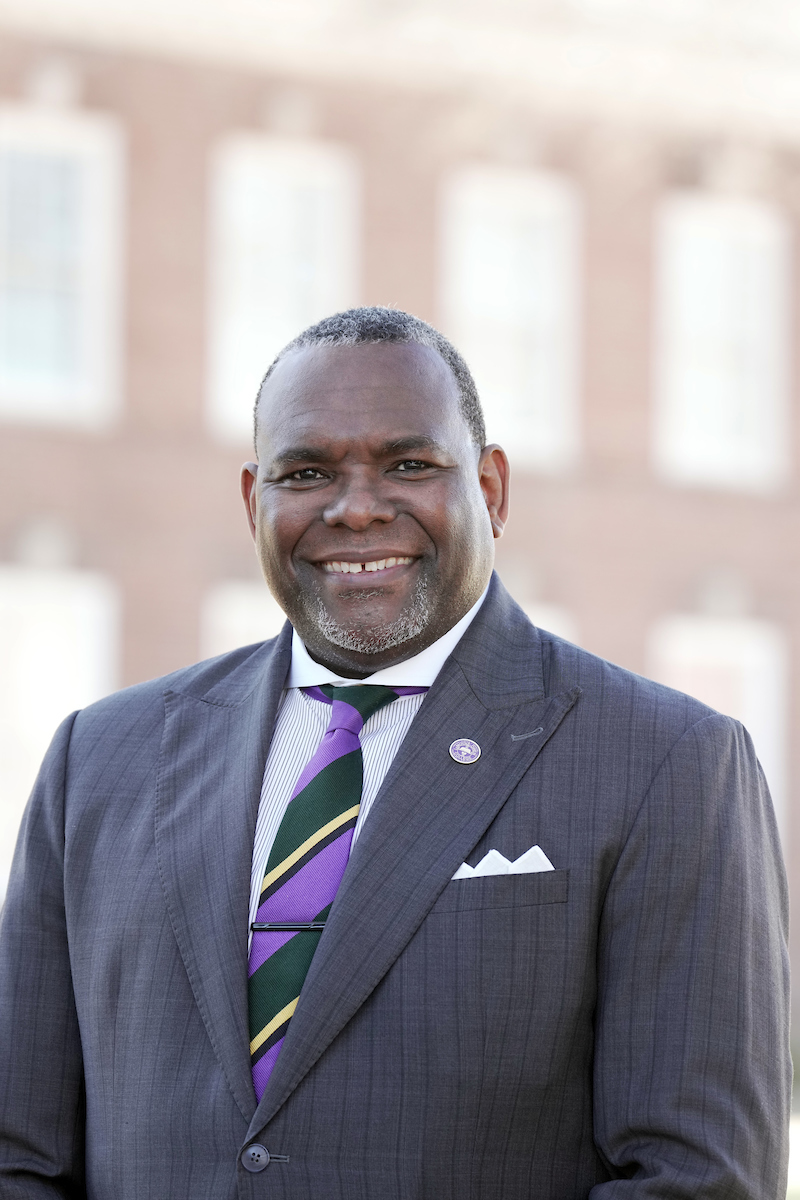
Christopher Bernard Davis grew up just west of Memphis in the tiny Arkansas Delta town of Proctor, named for an early settler named Moses Proctor.
David didn’t follow the traditional academic, corporate or government path to becoming a college president.
After graduating from the University of Arkansas in 1997, he became pastor of a Baptist church in western Arkansas.
In 2000, he was named senior pastor of St. Paul Baptist Church, then on South Parkway. Seven years later, Davis moved the growing congregation to a larger campus in Whitehaven.
Davis does have academic bona fides.
He earned a master’s degree in religion at Memphis Theological Seminary (MTS) in 2004, a Doctor of Ministry (DMin) degree from United Theological Seminary in 2007, and he’s pursuing a Doctor of Philosophy degree (PhD) from Anderson University.
Davis was a member of the MTS faculty for 16 years, and associate dean of doctoral studies for seven. Under his guidance, the DMin program grew from around 25 students to 100.
“I kept one foot in the sanctuary and one foot in the classroom,” Davis said.
He also spent a lot of time with both feet on LeMoyne’s campus. Before he was named interim president in 2023, Davis had been chairman of the college’s board of trustees for eight years.
“Chris deeply understands LeMoyne’s historic mission, its significant challenges, and its unique opportunities,” said Johnson-Dean. “He has the ability to tell the story of the college and to articulate a vision that honors the past but also pushes the college beyond its past.”
Since Davis was named interim president, enrollment is up 18 percent to 688. Davis’s goal: 1,000 by 2028.
Freshman retention rate is up to 60 percent. Davis’s goal: 80 percent.
The college’s endowment is up to $55 million. Davis’s goal: $100 million.
“Those are crazy goals, right?” Davis said. “But we believe that LeMoyne isn’t a charity. It’s an investment. In a city where we’re concerned about losing our best and brightest to Nashville and Atlanta, why would you not invest in an institution that manages to keep 96 percent of its graduates in this community?”
Davis has board members believing as well.
“We’ve had a revolving door of leadership over the years, but Chris has been a rock,” said K.C. Warren, chair of the board’s institutional advancement committee. “Now, under Chris’s leadership, fundraising is up, energy on campus is up, enrollment is up. This is an exciting time for us.”
“A faith-based college”
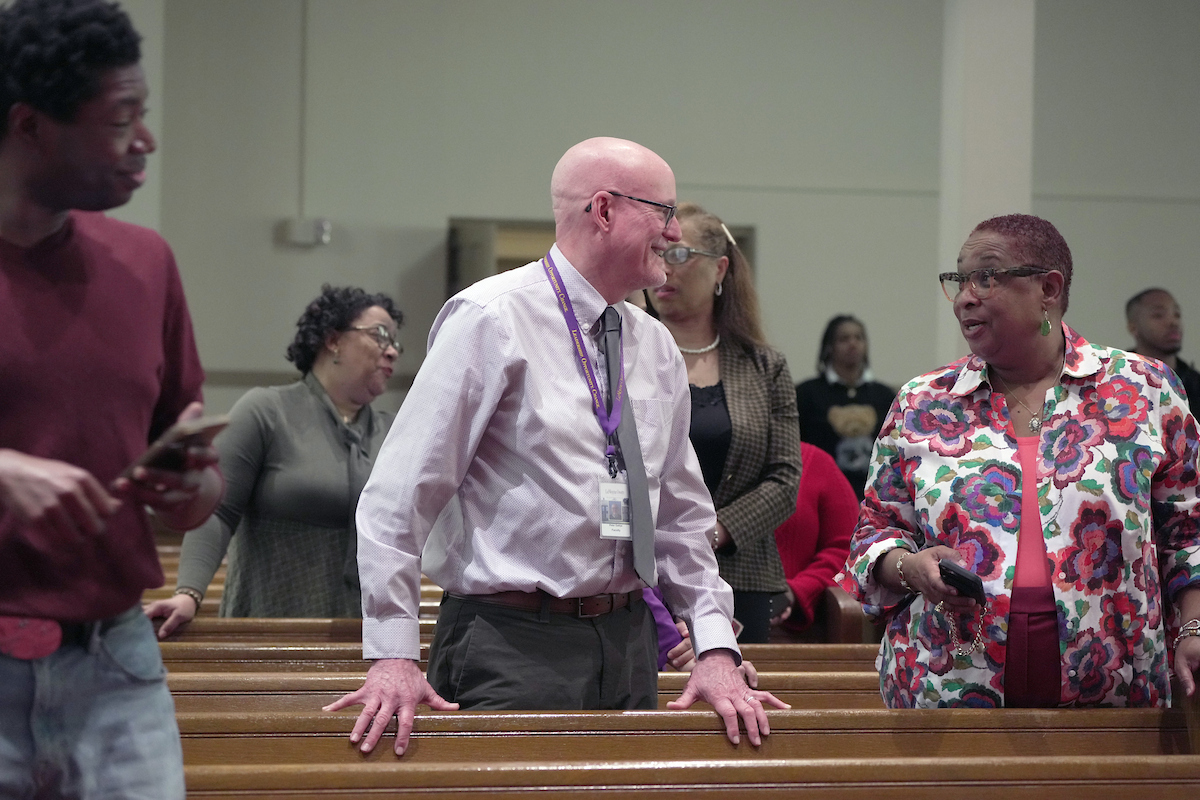
One of Davis’s first acts as president was to reinstitute a weekly chapel service at Metropolitan Baptist Church, which sits next door to the campus. Attendance is voluntary.
LeMoyne has been and remains a four-year liberal arts college, but Davis believes the school’s future will be stronger as it remembers and honors its past.
“When I got here, LeMoyne had sort of lost its way and abandoned its religious heritage,” Davis said. “I think it’s important to remember that LeMoyne-Owen College was created in a merger of two very different and diverse denominational backgrounds. This is a faith-based college.”
It certainly was a faith-founded college, a product of the Second Great Awakening, a significant Protestant religious movement of the early 19th Century.
In 1862, after the Union took control of Memphis, members of the American Missionary Association (AMA) opened Lincoln Chapel, an elementary school for freed and runaway slaves.
The AMA, inspired by the Second Great Awakening, was formed in 1846 by Congregationalists and other Christians committed to the abolition of slavery. The AMA founded more than 500 schools, including nine historically black colleges.
Lincoln Chapel was destroyed by fire during the Memphis Massacre in 1865. Six years later, a white Pennsylvania doctor and abolitionist named Frances Julius LeMoyne donated $20,000 to the AMA to open a new Freedmen’s School in Memphis.
LeMoyne Normal and Commercial School opened in 1871 on Orleans Street in South Memphis, next door to Second Congregational Church, which served as LeMoyne’s chapel.
The school — and the church — were relocated to Walker Avenue near Elmwood Cemetery in the early 1900s. LeMoyne became a junior college in 1924, a four-year college in 1930, and merged with S.A. Owen Junior College in 1968.
Owen College also has roots in the church. It was founded in 1954 by the Tennessee Baptist Missionary and Educational Convention. It was named for Rev. S.A. Owen, who was pastor of the Metropolitan Baptist Church.
“LeMoyne-Owen College has played a major role in uplifting, empowering and advancing the Black community in Memphis,” said Rev. Dr. Earle Fisher, one of two faculty members in the college’s new religion degree program. “And as Black folks go, so goes Memphis.”
Fisher, a LeMoyne-Owen graduate, has been senior pastor of Abyssinian Baptist Church since 2011. Before teaching at LeMoyne, Fisher taught religion courses at Rhodes College.
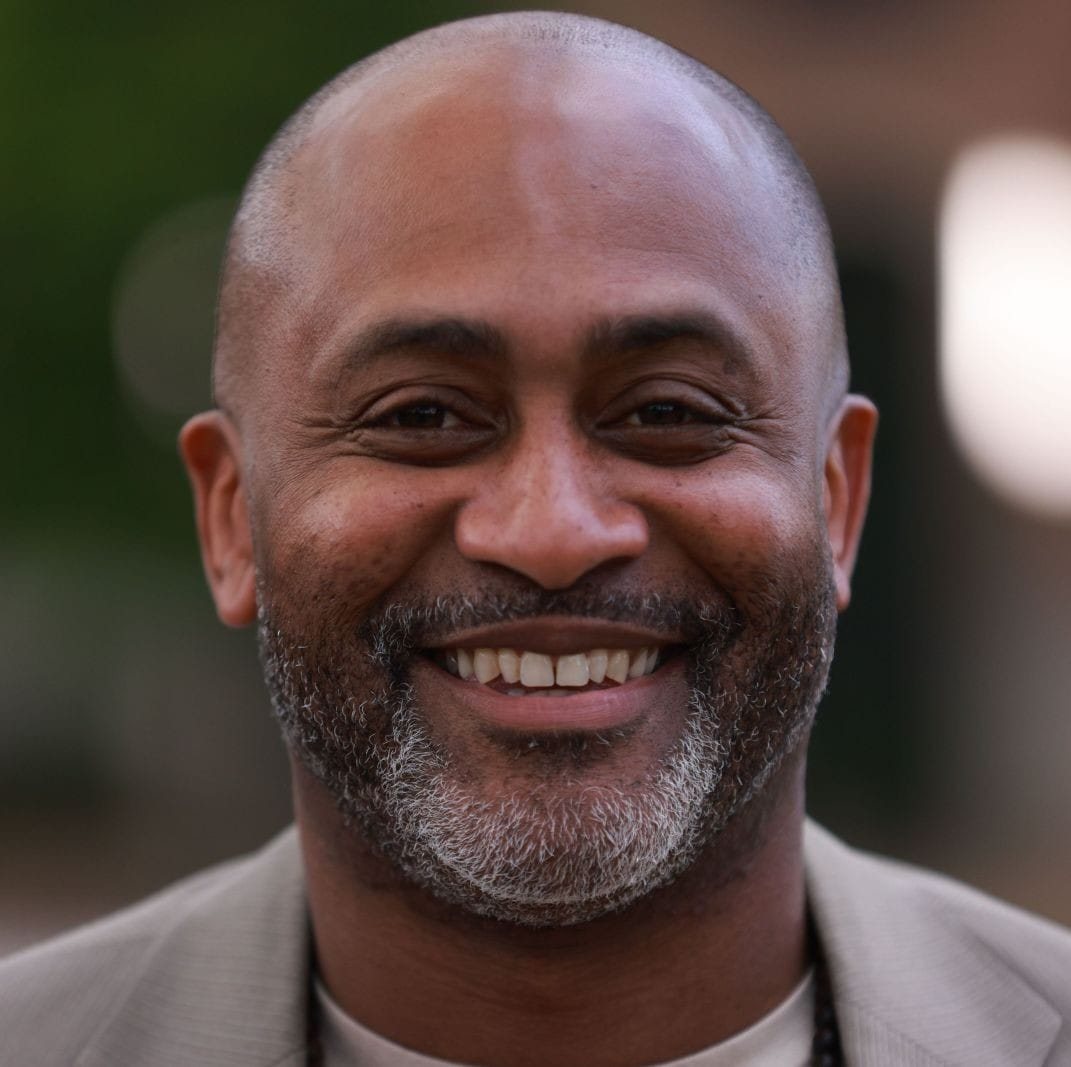
Rhodes, CBU and the University of Memphis all offer undergraduate degrees in religious studies, but none of those programs include courses designed to prepare students for ministry.
LeMoyne’s religion major includes courses in African American preaching, worship in the Black Church, pastoral care, and church administration.
“Memphis needs a college that provides a formal, undergraduate training for black religious practitioners, and there’s no better place for that than the city’s only historically black college,” said Fisher.
LeMoyne’s alumni roster includes such legendary local ministers as G.E. Patterson, Benjamin Hooks, Billy Kyles, James Netters, Reuben Green, Randolph Meade Walker, and Gina Stewart.
It also includes such academic luminaries as Black church scholar C. Eric Lincoln; Henry Logan Starks, the first Black professor at Memphis Theological Seminary; and Dr. Clarence Christian, the first Black professor at Rhodes College.
“Awakening from the dead”
LeMoyne-Owen will graduate its first ever class of religion majors next year.
Six students began taking religion classes last fall. The college hopes to raise that number to 10 this fall and keep growing.
The new religion program offered four courses last fall and four others this spring. All are taught by Gathje or Fisher.
“LeMoyne-Owen has always offered religion courses, but never a religion major,” said Gathje, chairman of college’s Fine Arts & Humanities division. “This will help us prepare students for ministry in a way no other local college does.”
Gathje has been a local leader in theological education for more than a quarter century.
In his 17 years at MTS, Gathje filled a wide variety of roles including director of admissions, financial aid, library and IT as well as academic dean and professor of Christian ethics.
Before that, Gathje, who has a PhD from Emory University, spent a decade as a professor and chair of the department of religion and philosophy at Christian Brothers University.
He’s more widely known locally as the founding director of Manna House, a nonprofit ministry for men and women experiencing homelessness.
“No one in this city knows more about theological education and application than Pete,” Davis said.
LeMoyne’s first class of religion majors include Devin Ellis and Rev. Y.C. Cox.
Ellis grew up near LeMoyne-Owen College. Her grandfather was a security guard there. She wants to be a chaplain and work in a prison or a hospital.
“The courses I’ve taken from Dr. Gathje and Dr. Fisher are retraining my brain,” she said. “It’s empowering. I feel like I’m awakening from the dead.”
Cox, 67, longtime pastor of Advocate Fellowship Baptist Church in Barton Heights, started college twice in his younger days but never got a degree.
“I’m the OMOC. The old man on campus,” said Cox, whose youngest son by baptized by Davis many years ago. “People ask me, what can you do with a religion degree at your age? I say, ‘Anything I want.’”
David Waters is Distinguished Journalist in Residence and assistant director of the Institute for Public Service Reporting at the University of Memphis.
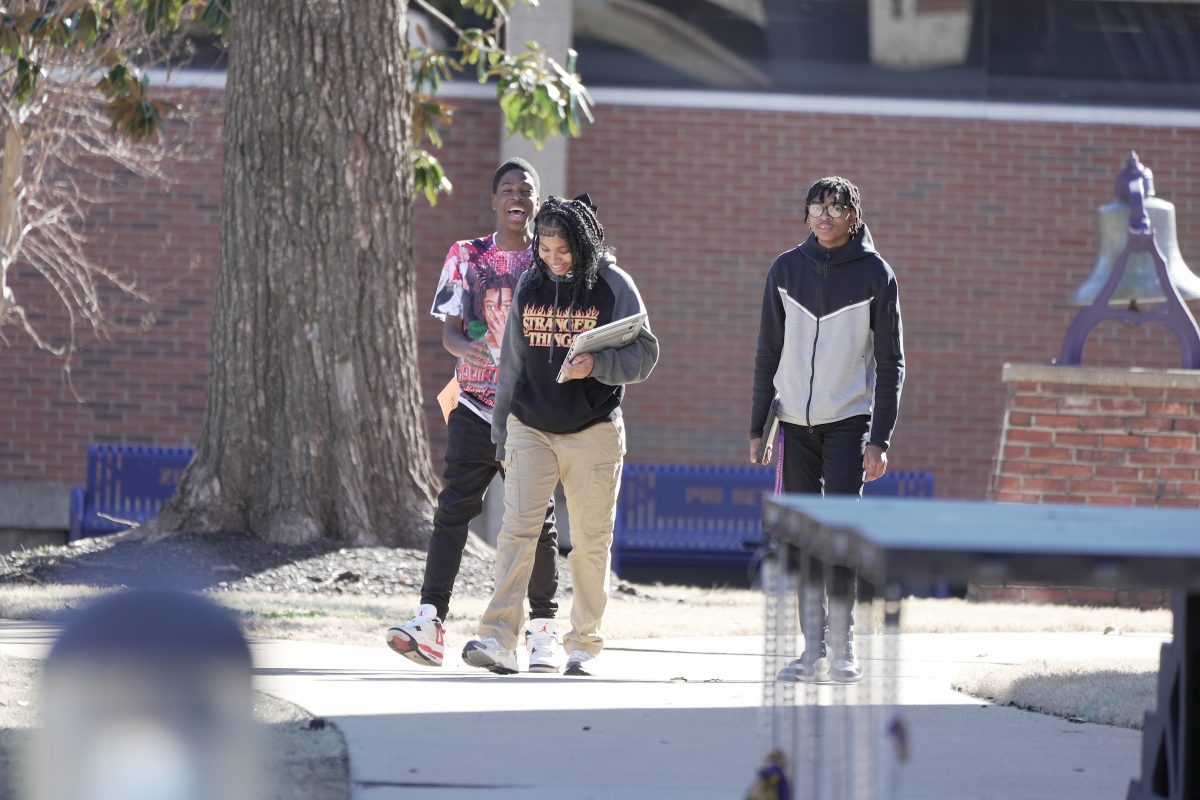
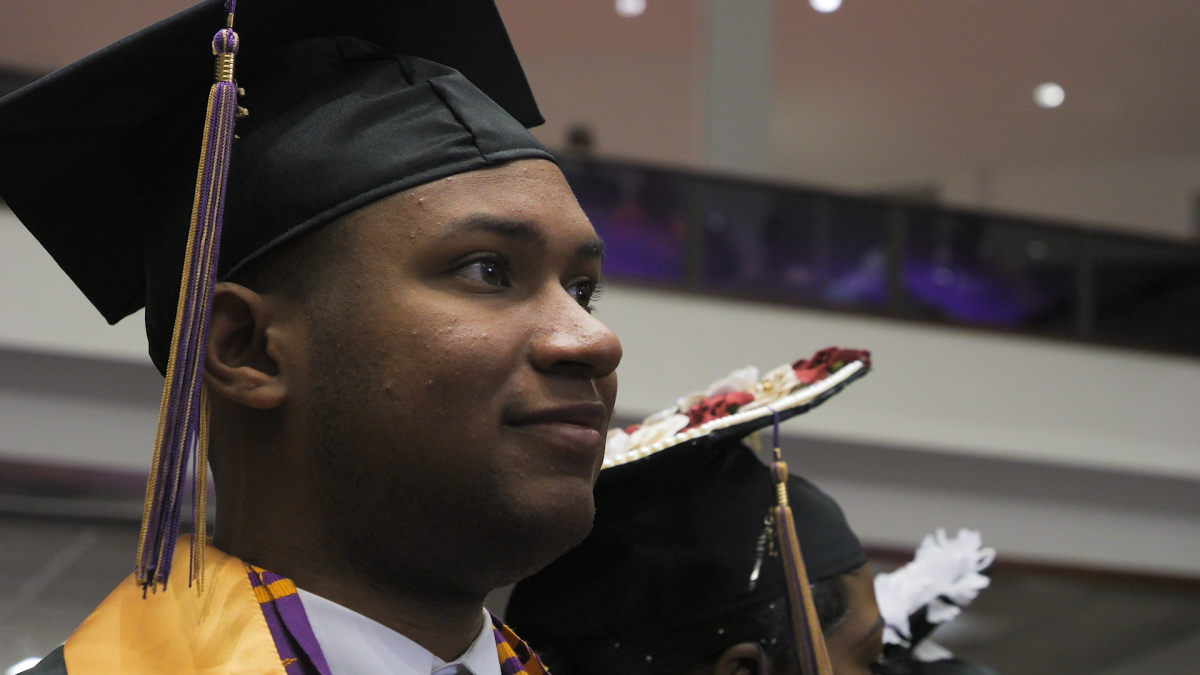
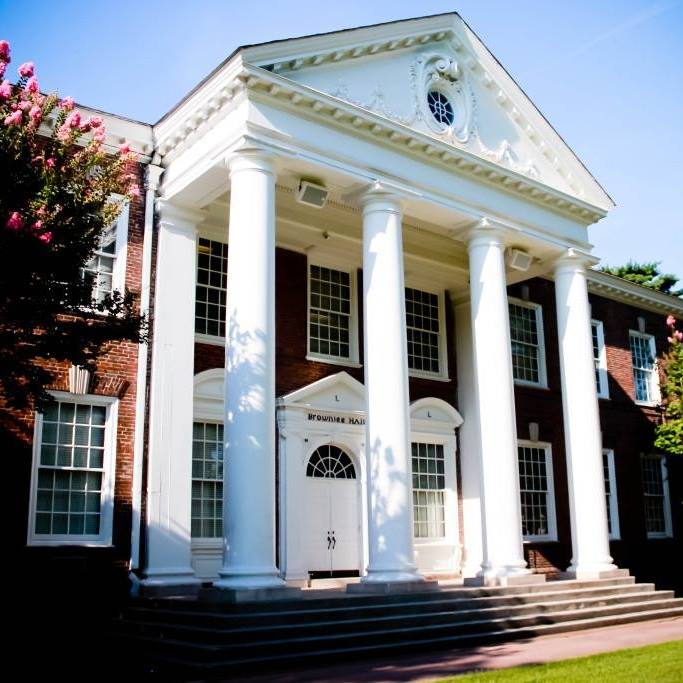
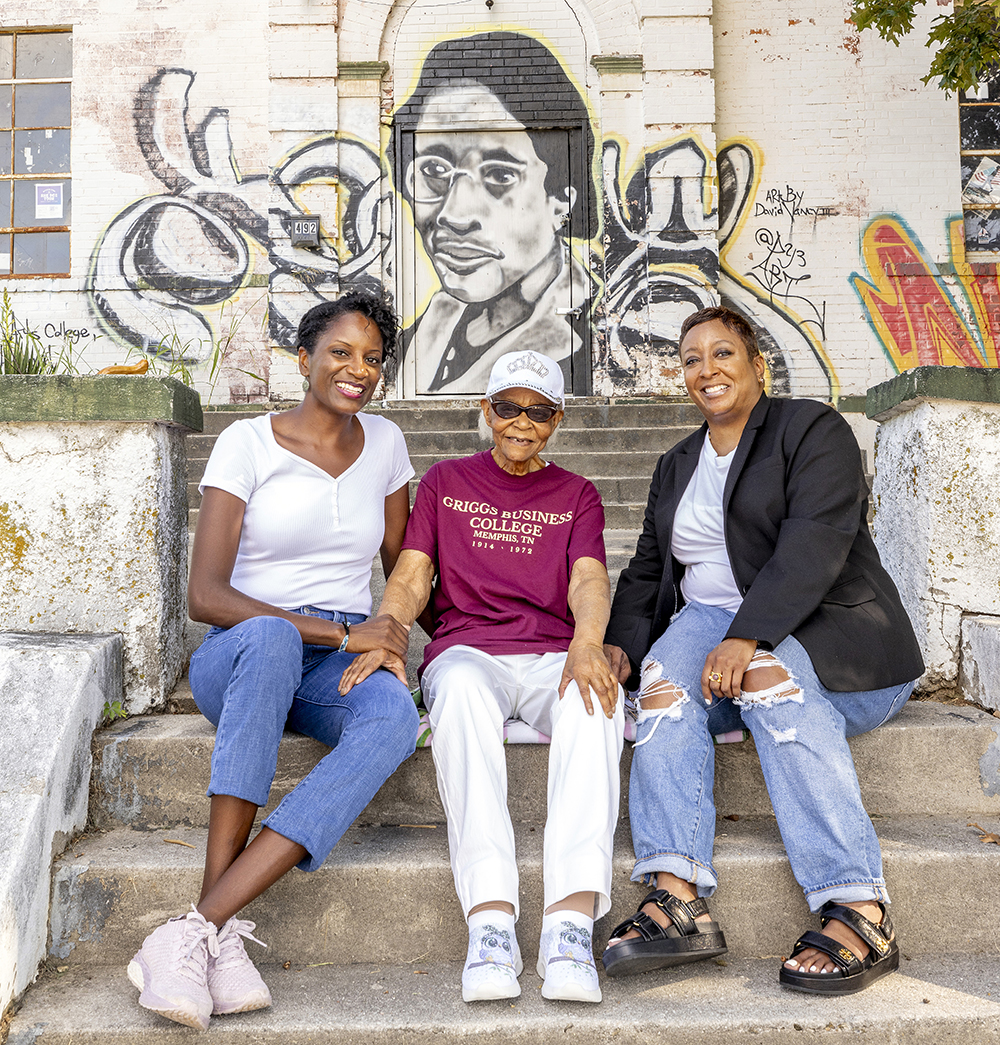
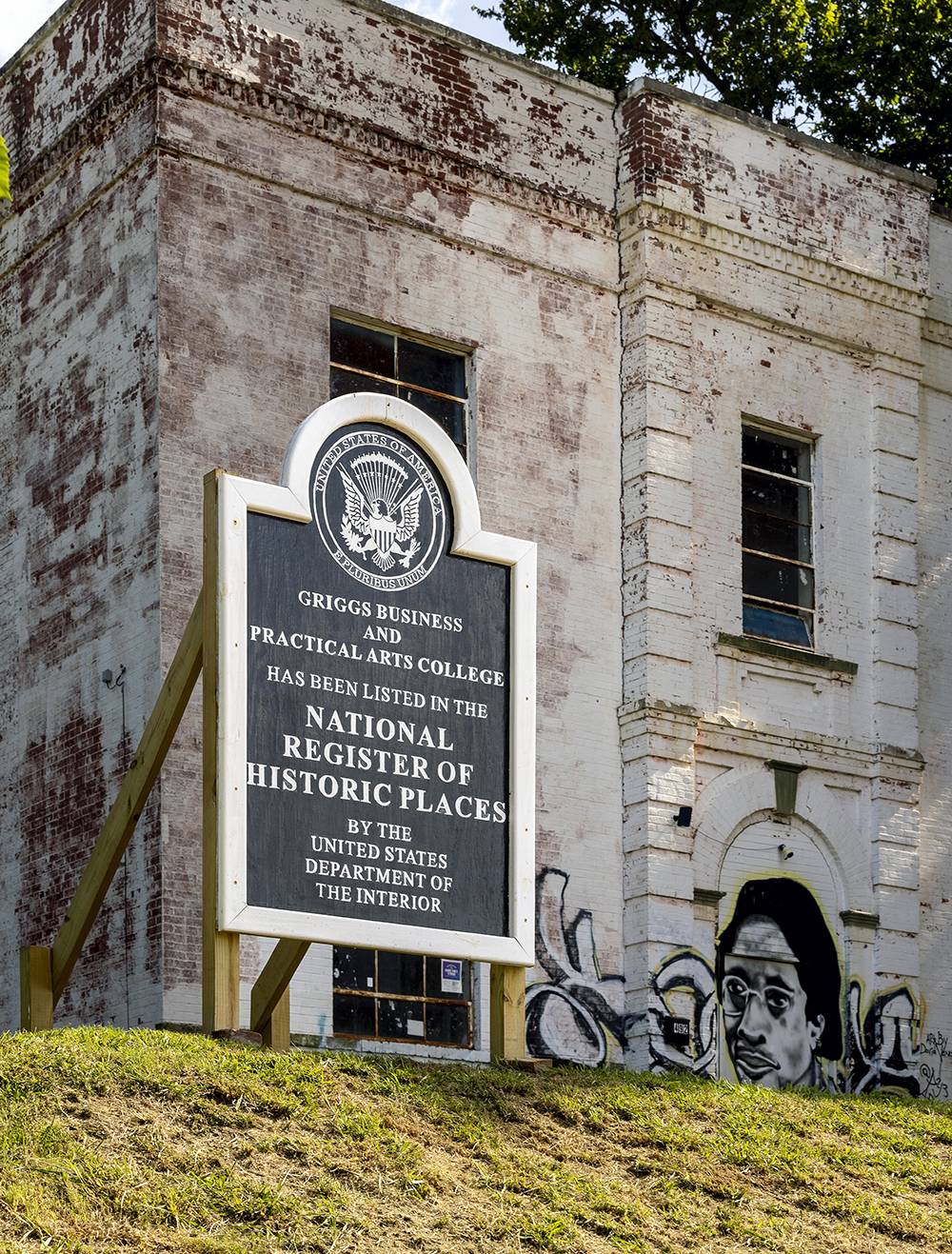
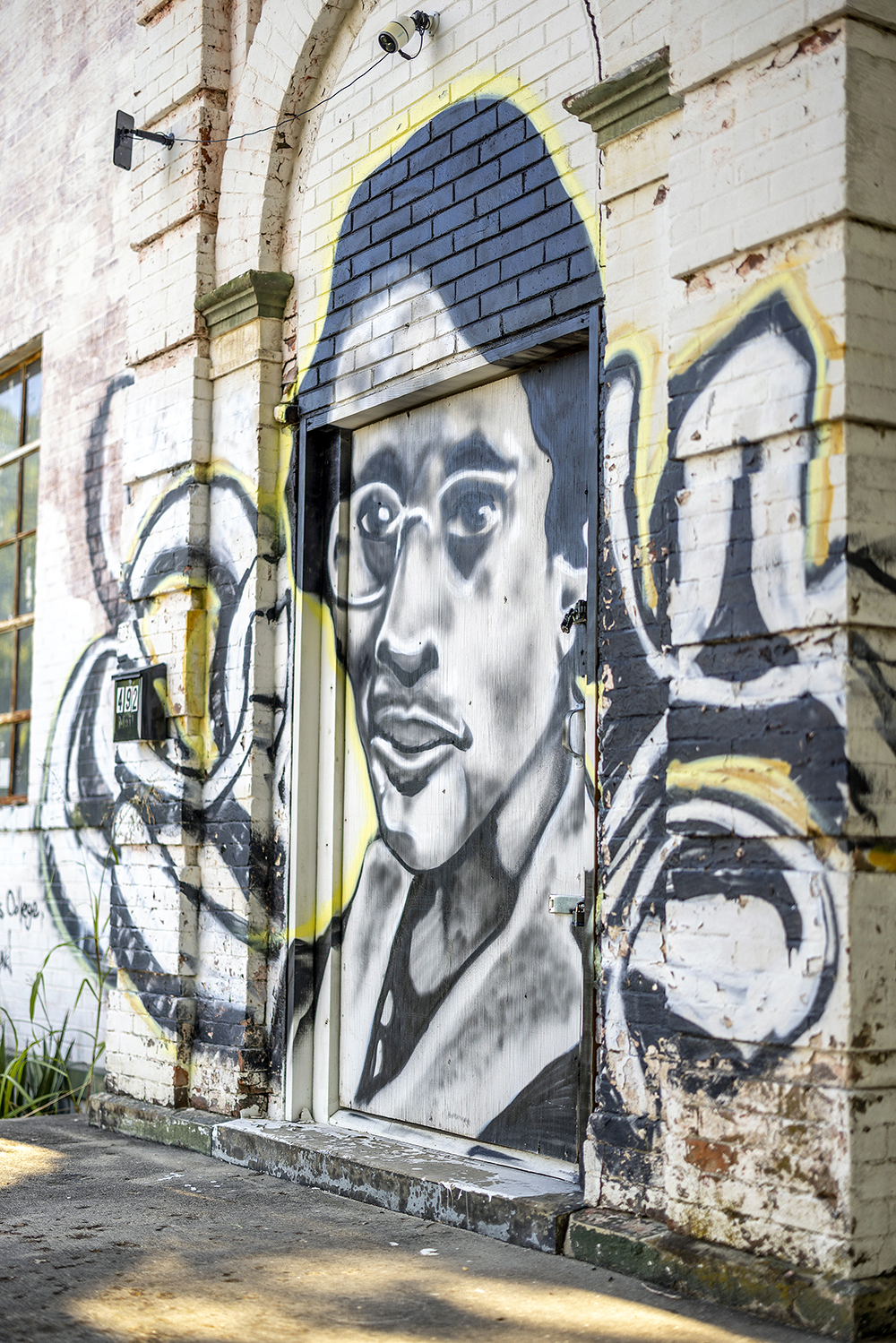
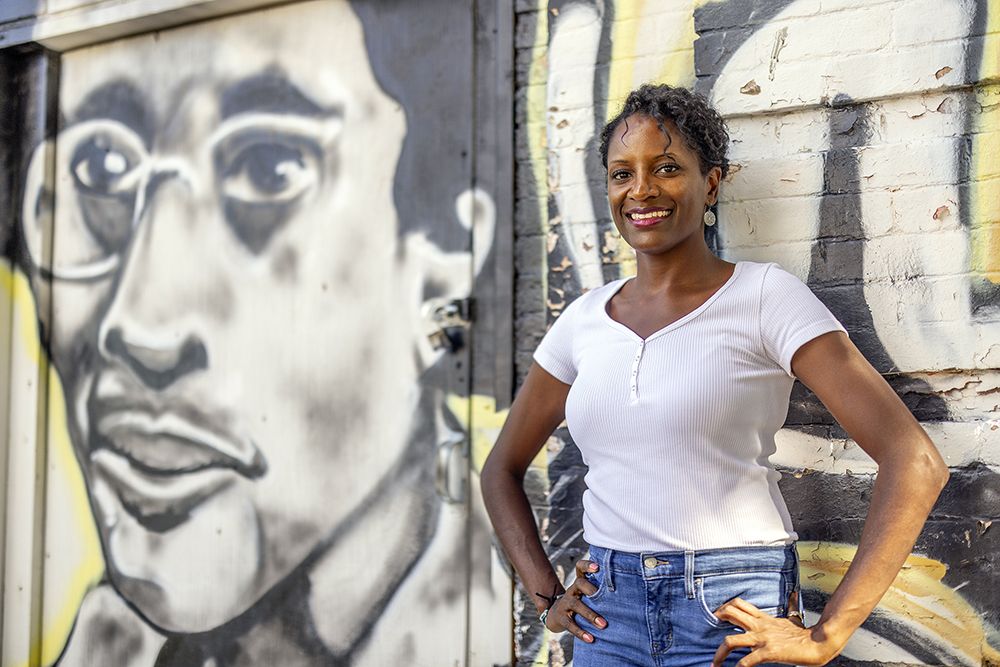
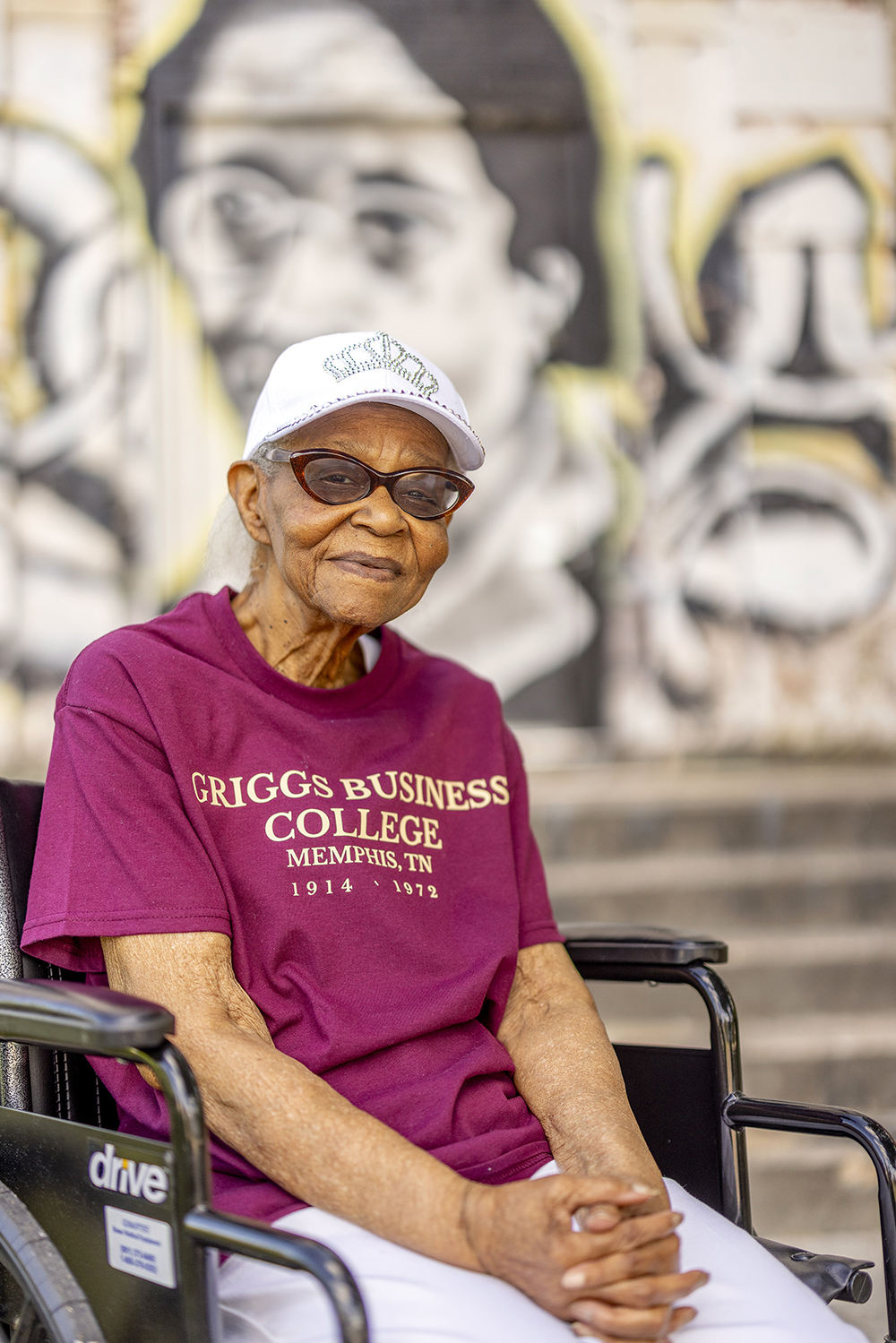
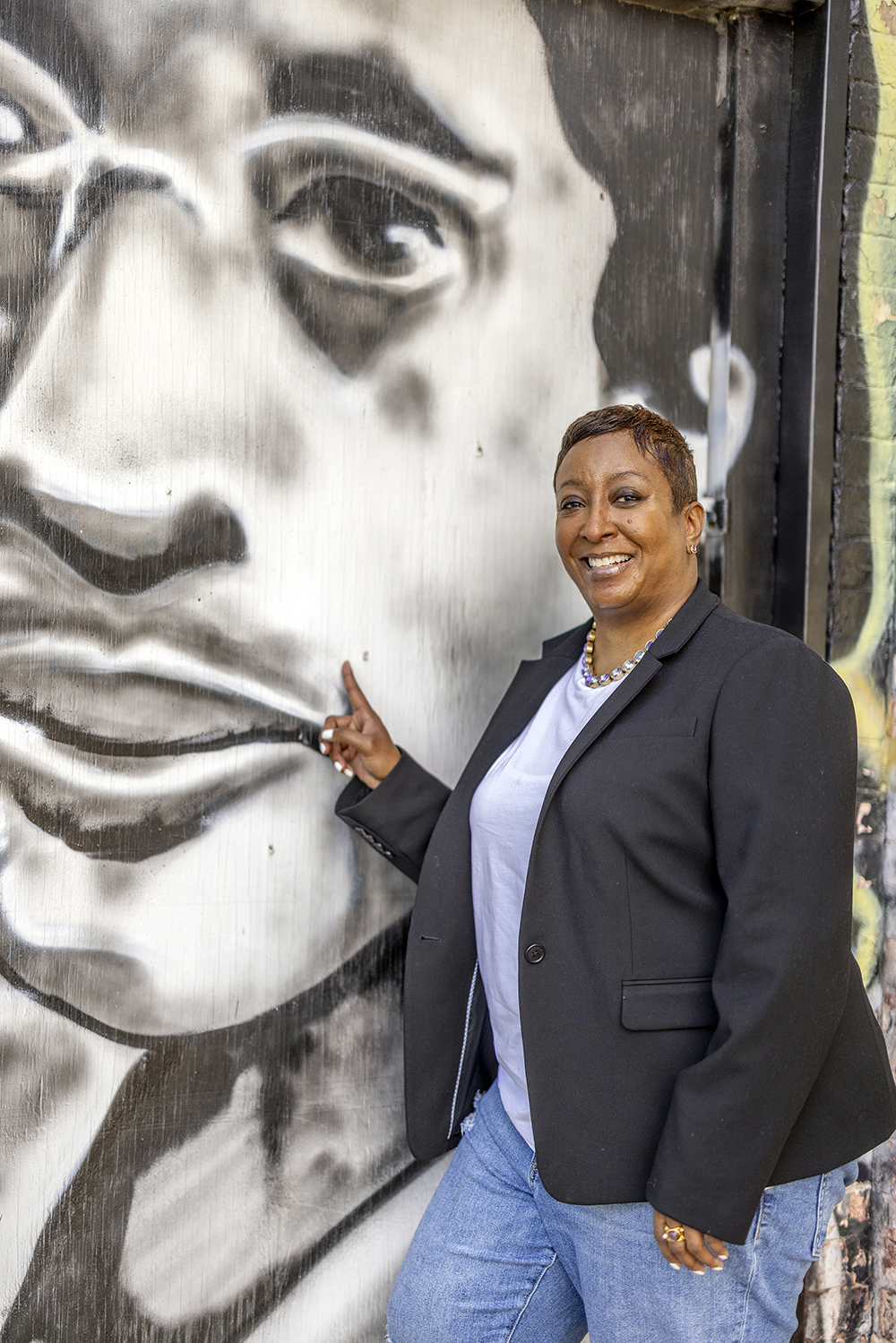
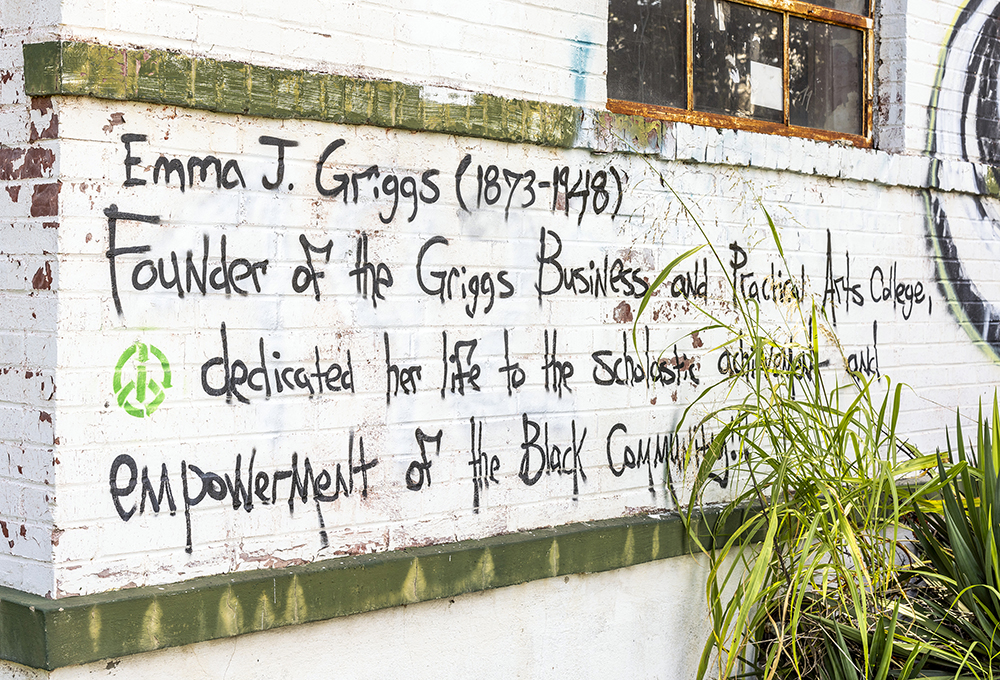
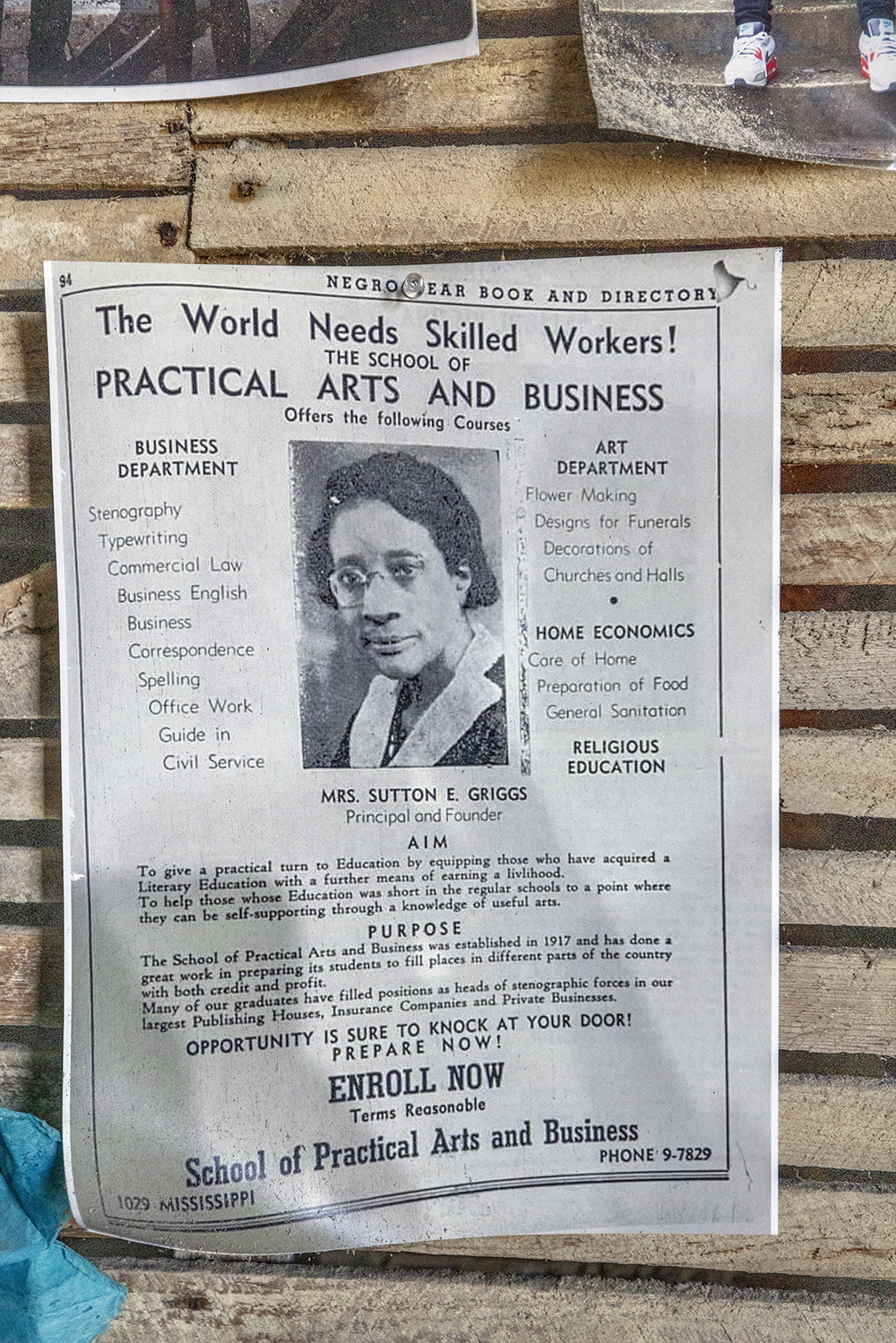
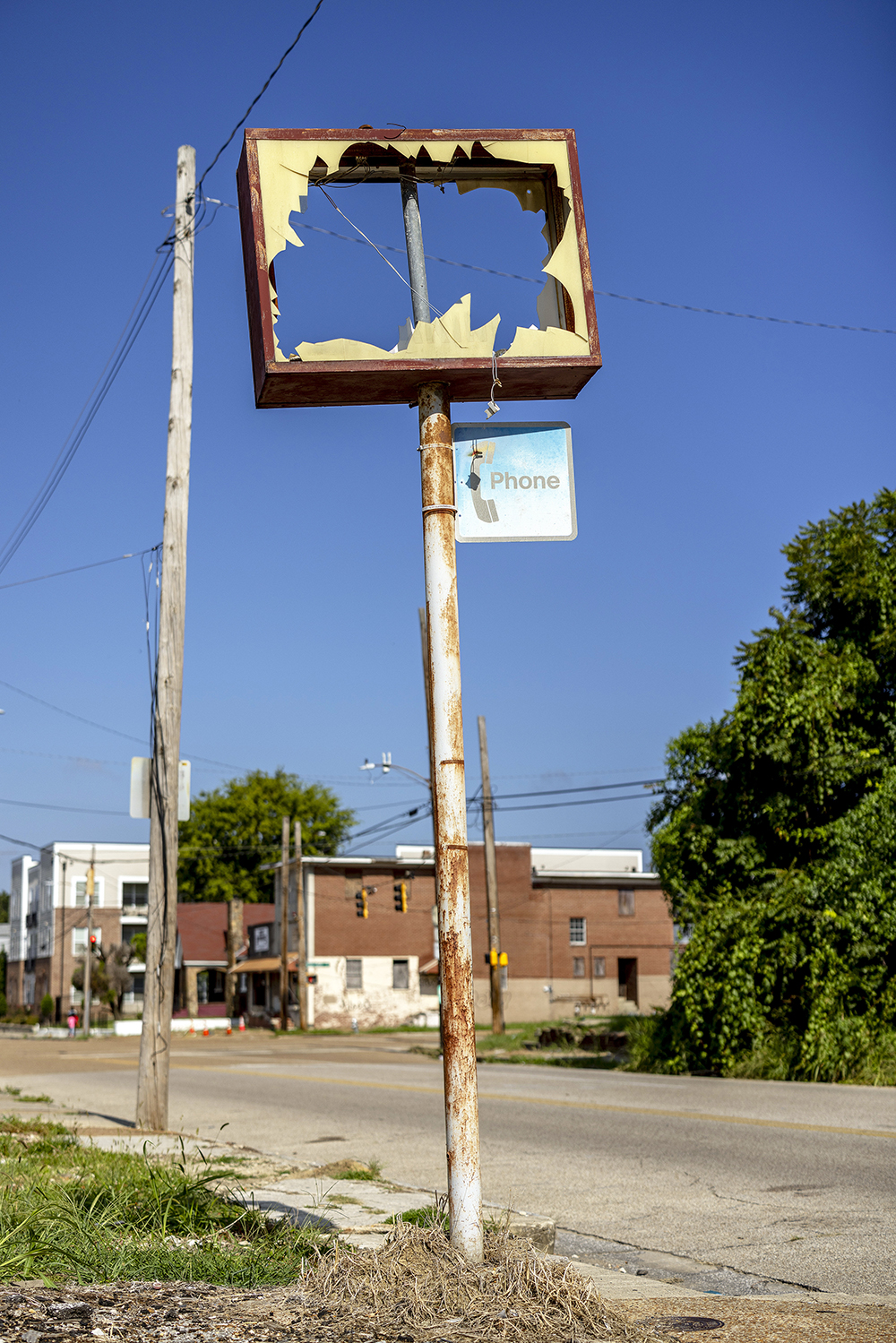

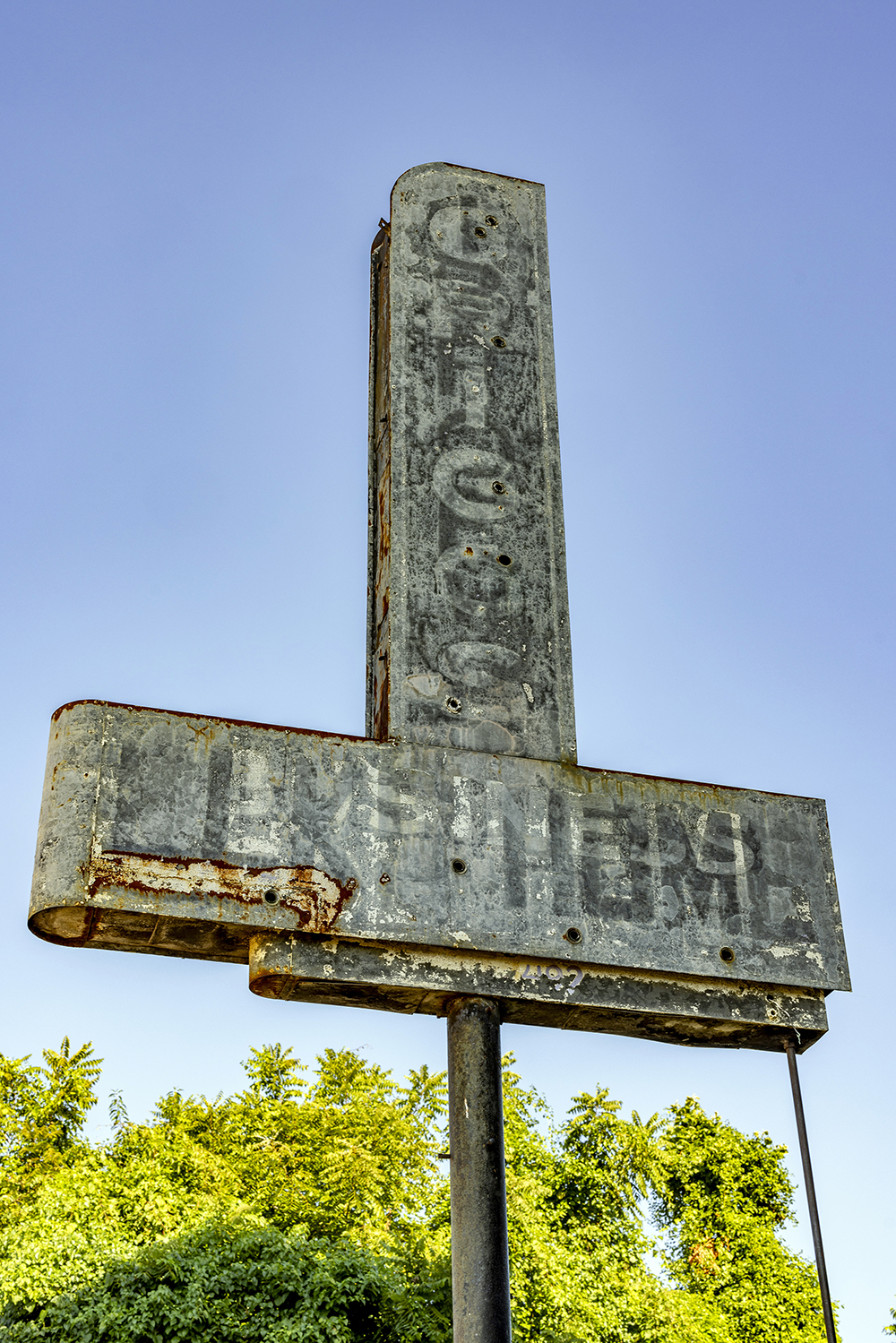
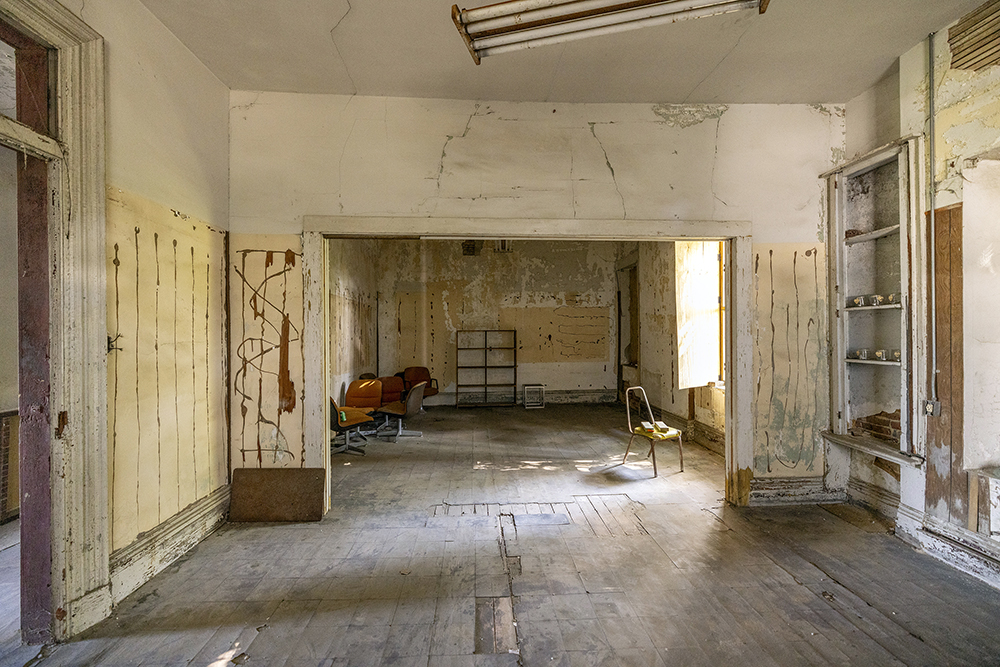
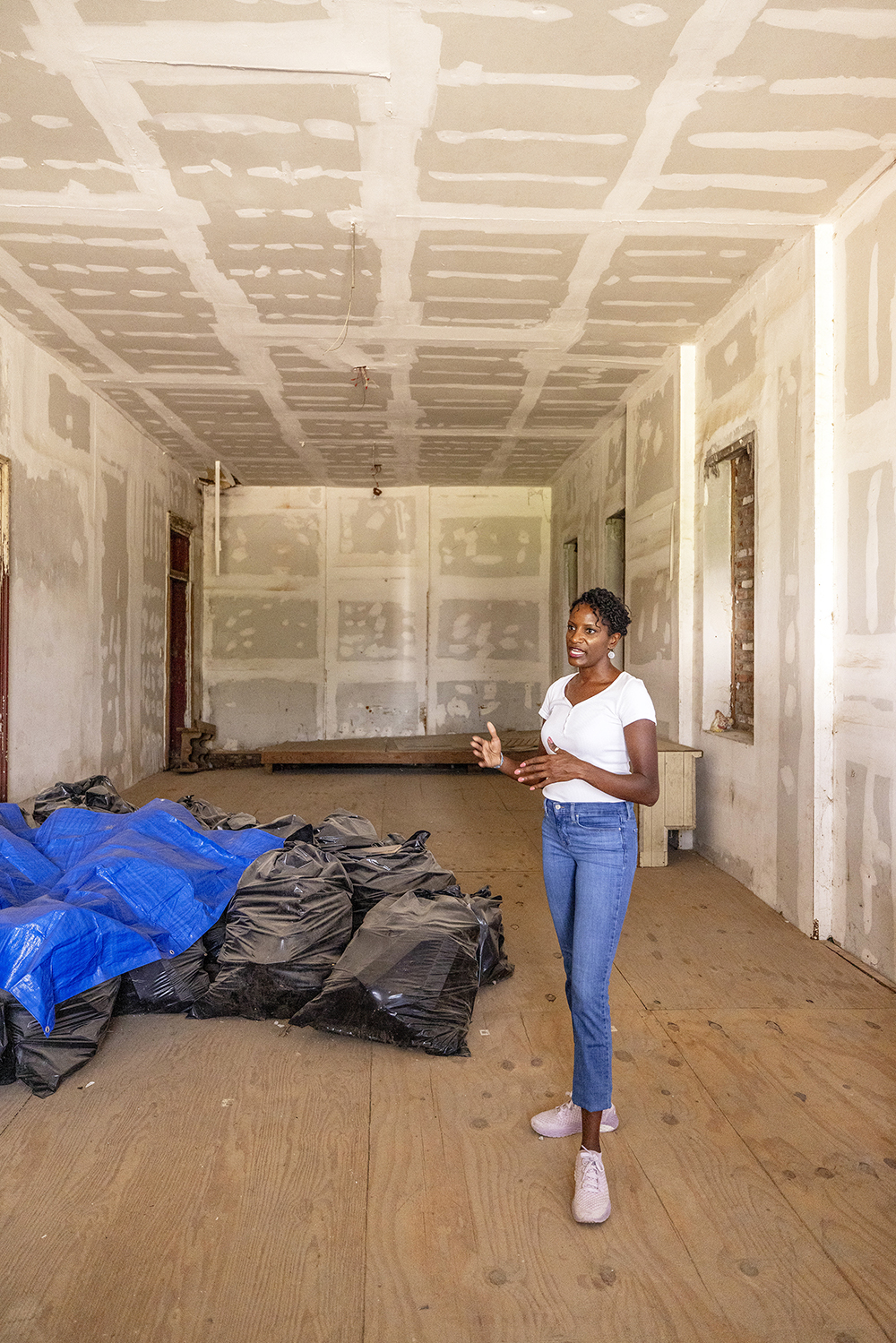
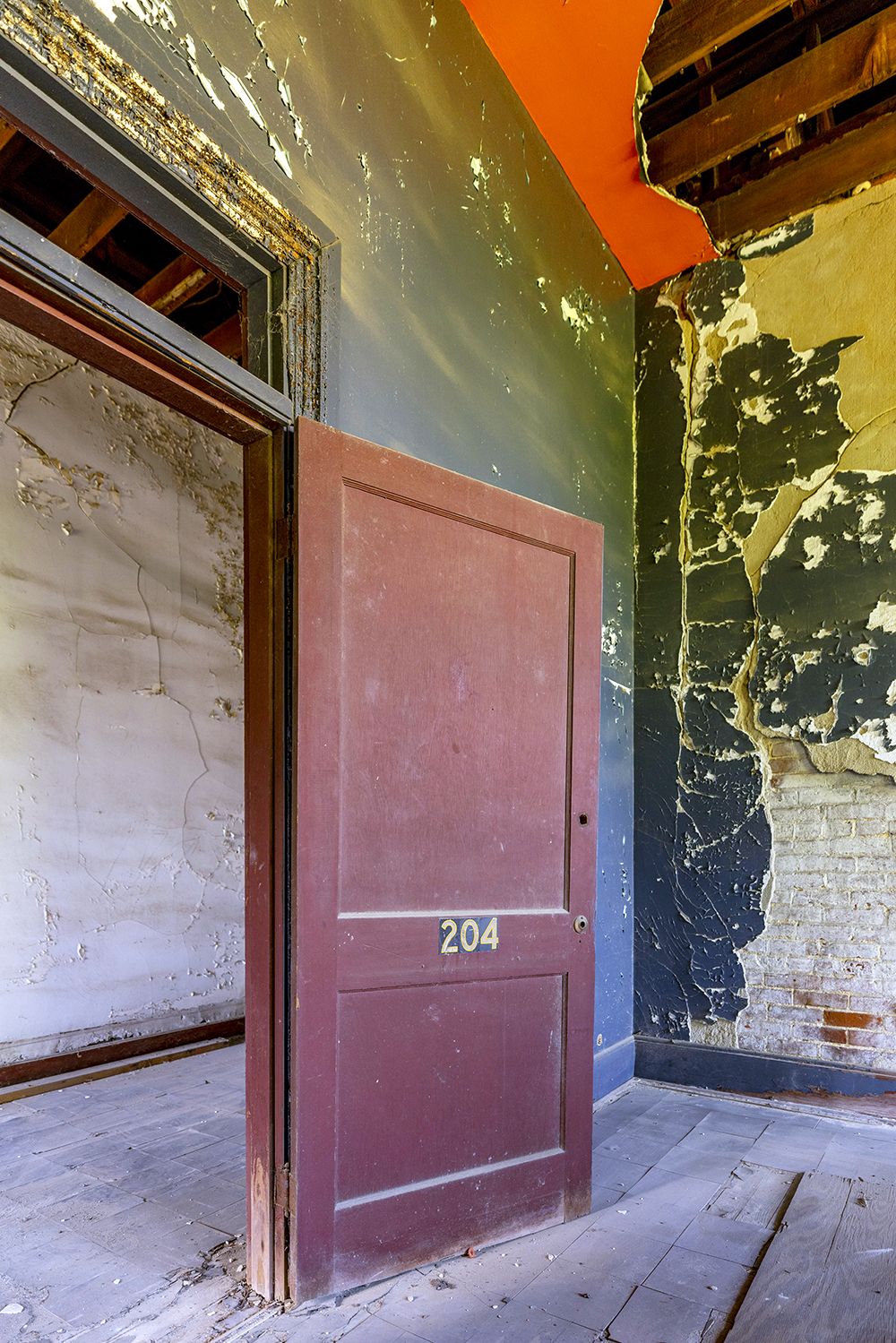
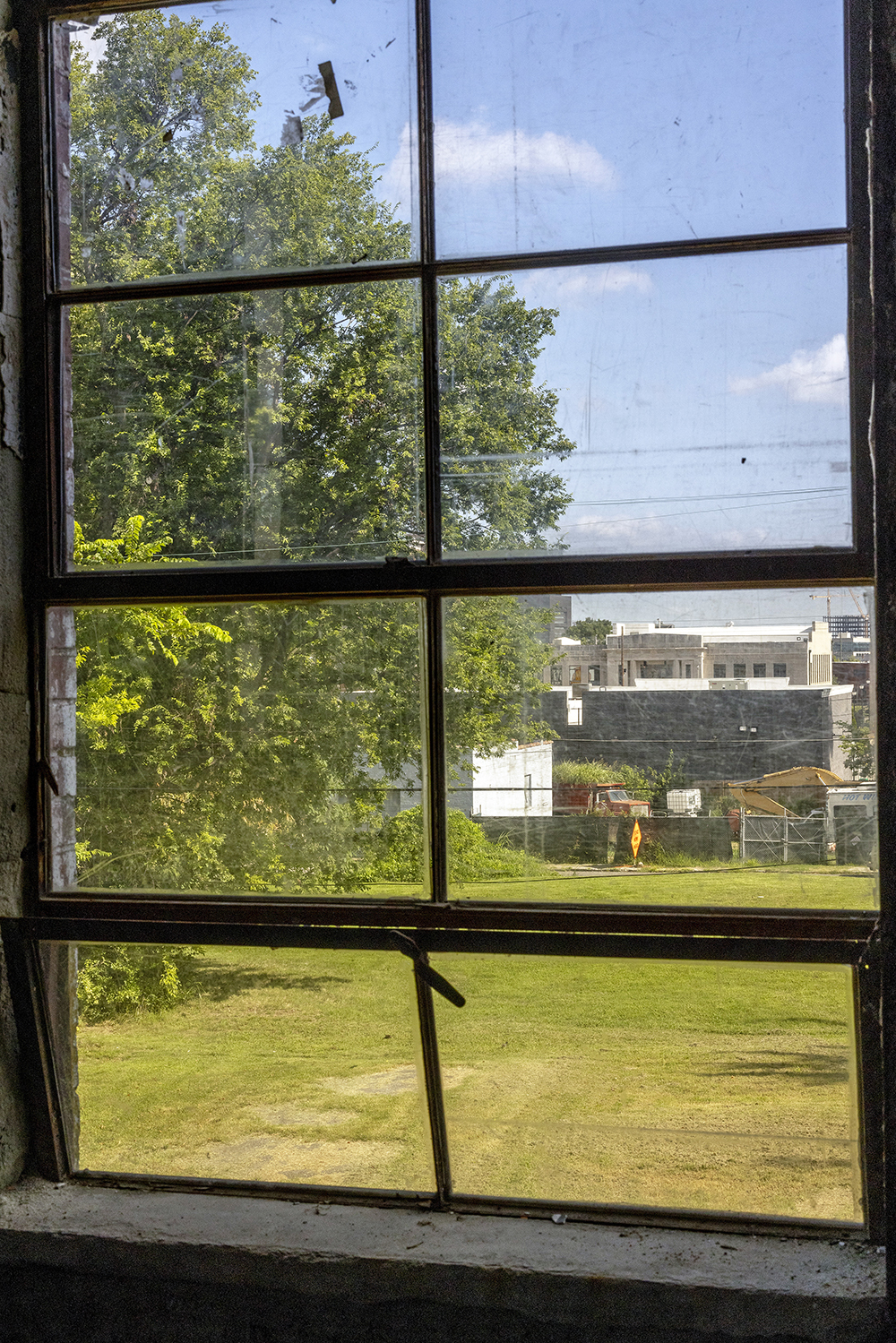
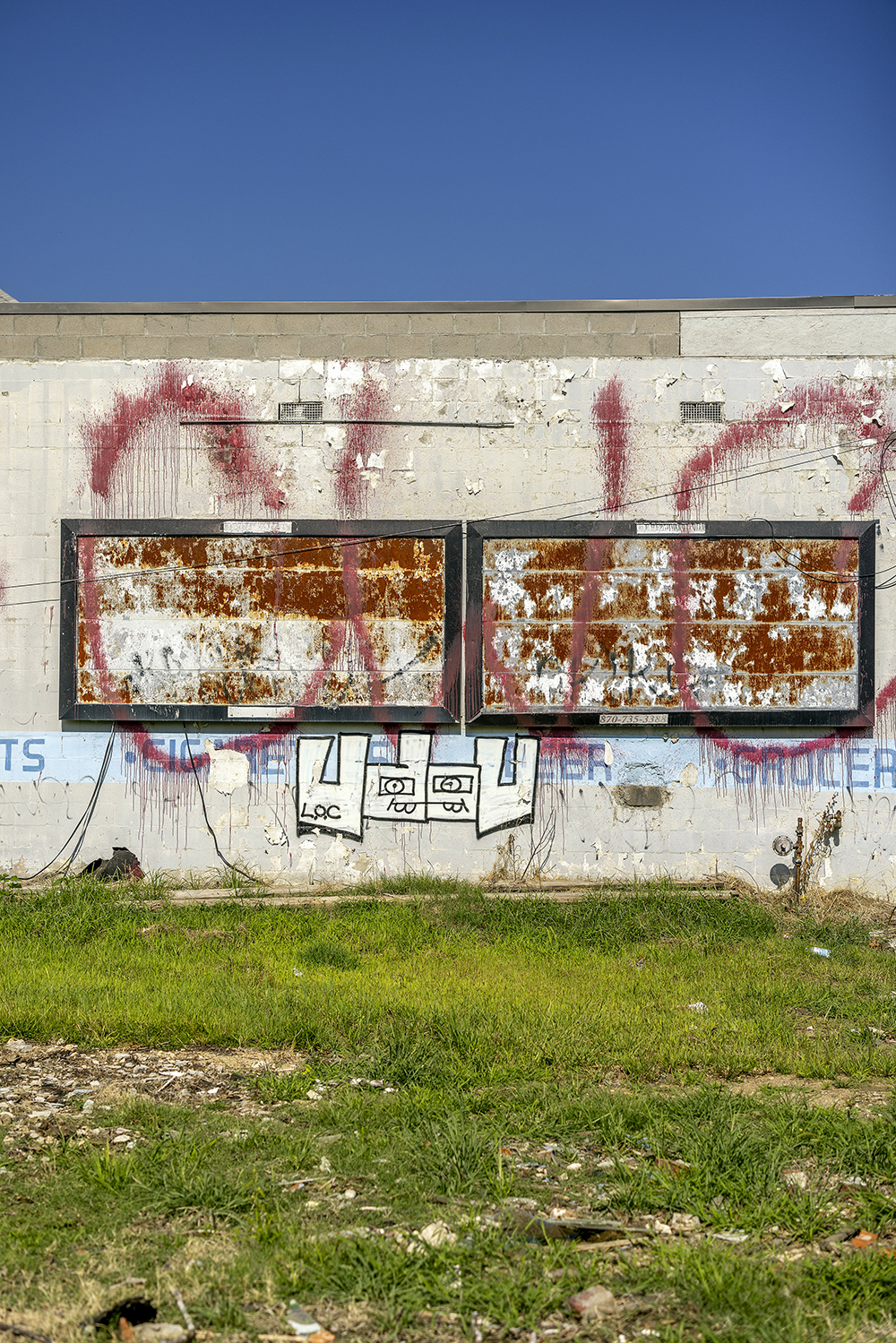
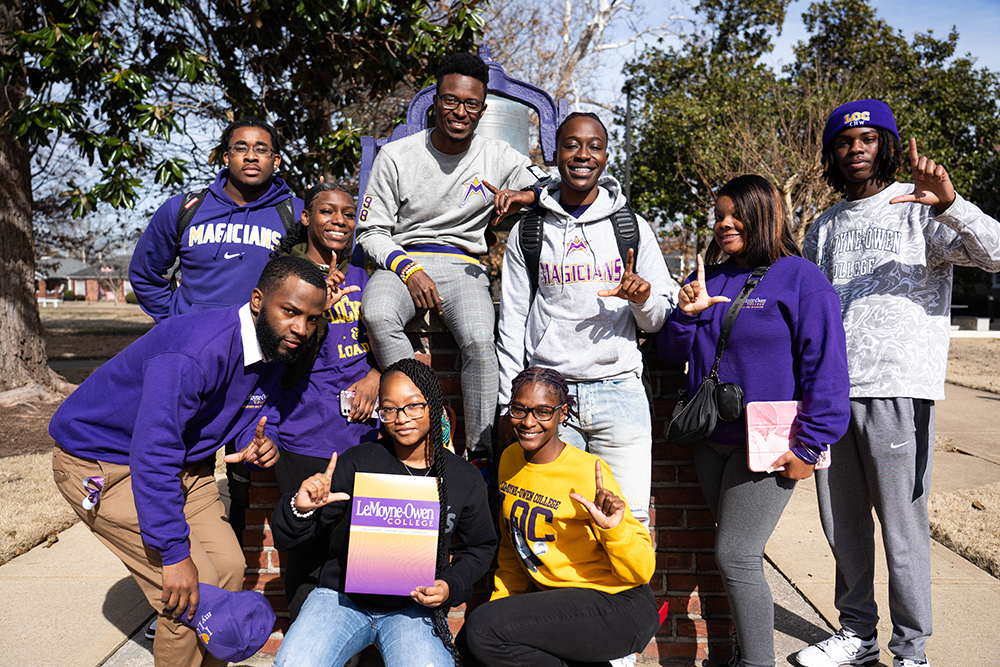
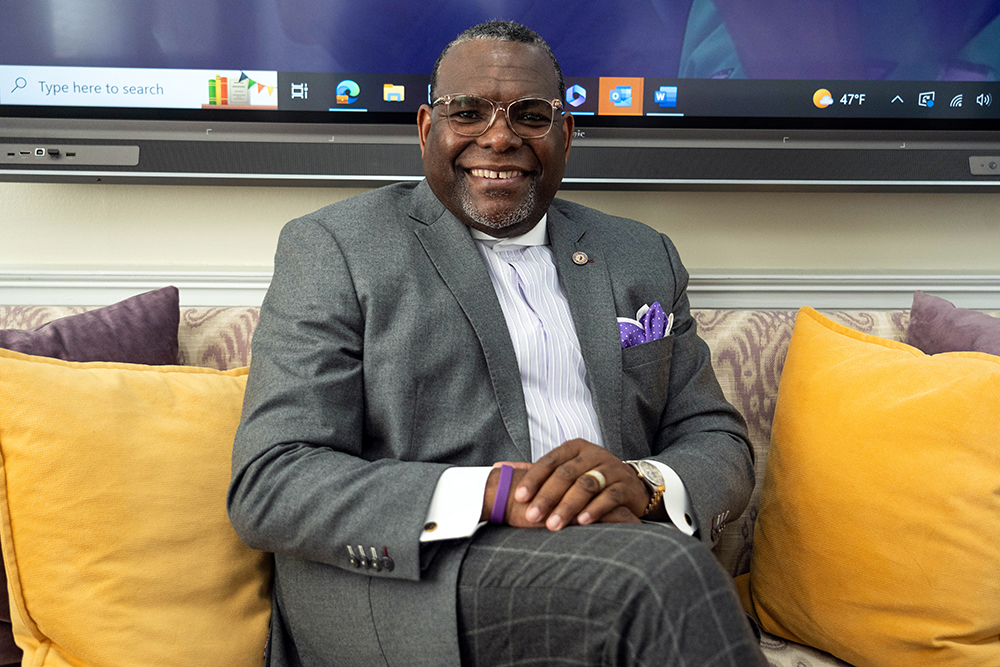
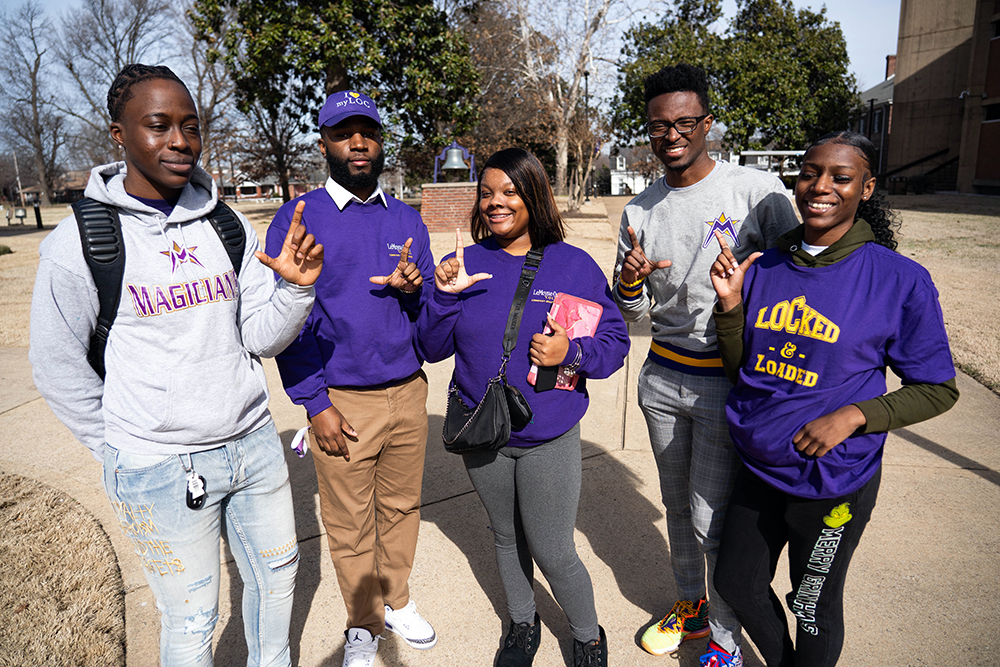
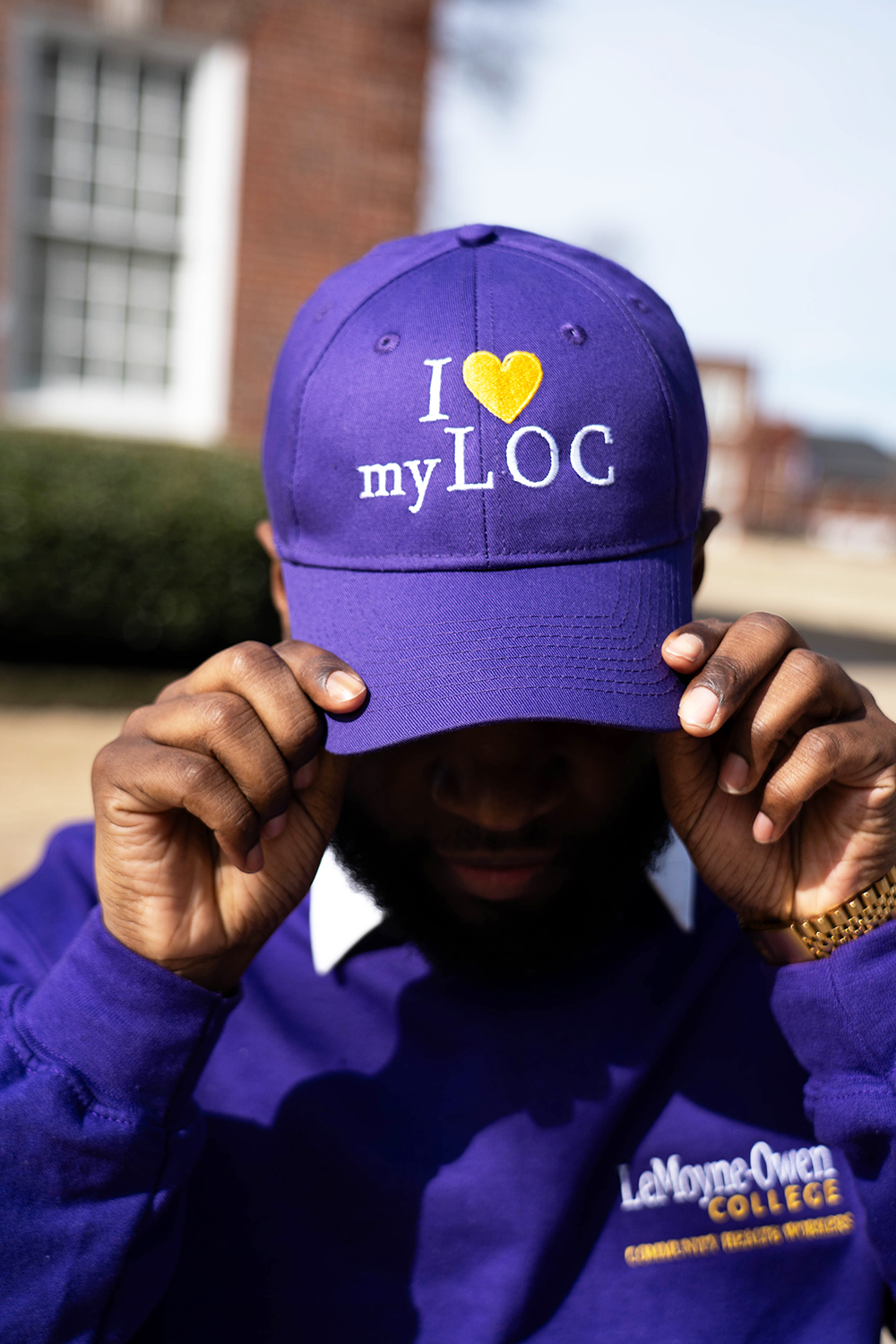


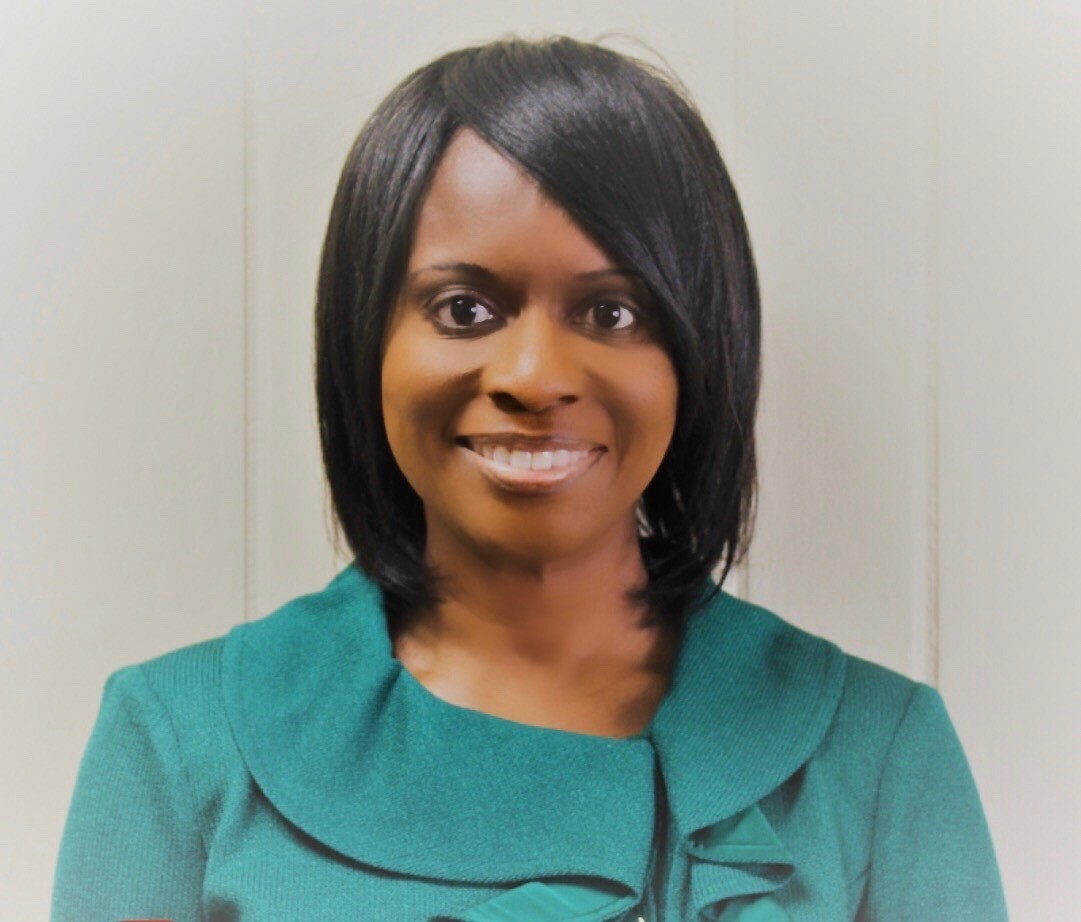 Delta State University
Delta State University  Facebook/Tom Graves
Facebook/Tom Graves 
 Facebook/Earler Fisher
Facebook/Earler Fisher 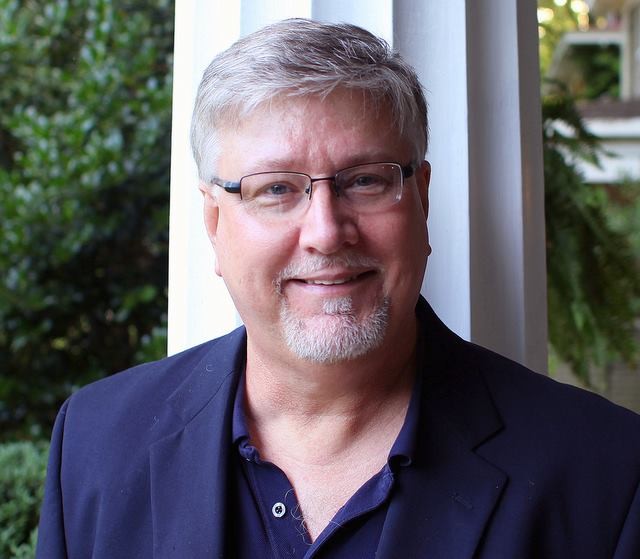 Facebook
Facebook 




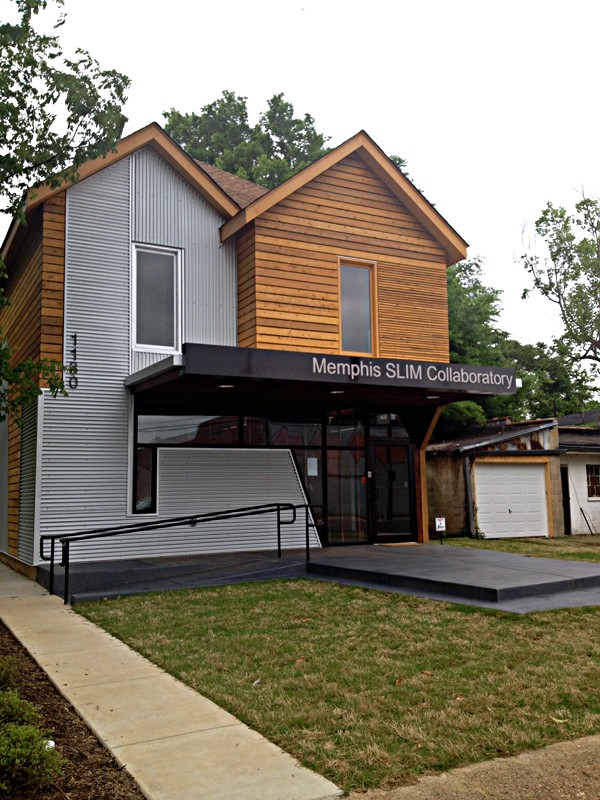 Bianca Phillips
Bianca Phillips